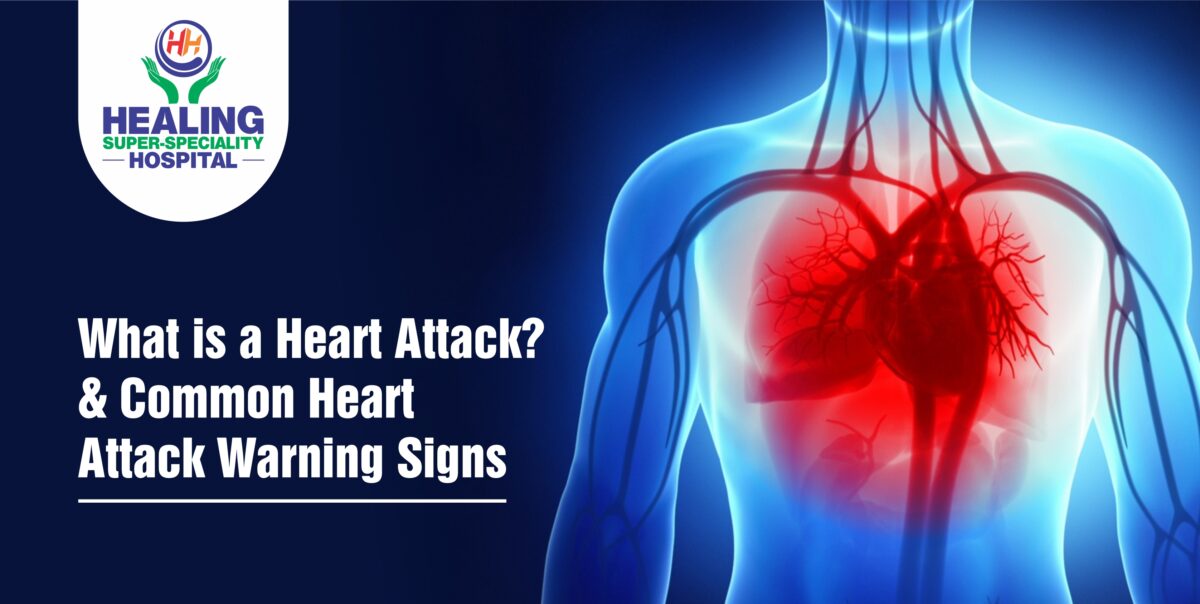A heart attack occurs when the blood flow to the heart is cut off. The most common cause of blockage is an accumulation of fat, cholesterol, and other chemicals which forms plaque in the arteries.
A plaque can create a clot, thus obstructing blood flow. Although a heart attack or myocardial infarction, can be deadly, therapy has vastly improved over the years. If you suspect you’re suffering from a heart attack, get emergency medical treatment right away.
There aren’t always obvious symptoms of something being wrong with your heart. Chest pain is not the only sign of a heart attack. Some cardiac symptoms aren’t even felt in the chest, and it’s not always easy to figure out what’s wrong.
If you are 60 or older, overweight, have diabetes, high cholesterol or high blood pressure, you should be more concerned about heart-related problems.
Common Heart Attack Warning Signs
- Chest discomfort: This is one of the most common warning signs or symptoms of any cardiovascular disease. Most heart attacks begin with pain in the centre of the chest while you are resting or doing some physical activity. This pain may last more than a few minutes – or it can go away and then return.
You may experience a tightening, squeezing, fullness, or discomfort in or around your chest. Although you should also bear in mind that sometimes people get heart attacks without experiencing any chest pain at all. This is particularly prevalent among women.

- Pain spreading to the arm: Another common symptom of a heart attack is pain radiating down the left arm of the body. Although the pain mostly begins from the chest, in some cases mere arm pain can also turn out to be a heart attack.
Therefore, you should never hesitate to call the emergency helpline number if you feel even the slightest doubt.

- Nausea: You can indeed feel nauseous because of a variety of reasons unrelated to your heart. But you should still be conscious of the fact that it can also be a warning for a heart attack.
So, if you’re experiencing this symptom, especially if you’re at risk for heart problems, see a doctor right away.
Consult the Best Cardiologist in Chandigarh here: https://healinghospital.co.in/cardiology-department/
- Sweating: Sweating unusually, particularly if you aren’t much physically active, may be an early sign of a heart problem. Since pumping blood into clogged arteries requires more effort from your heart, your body sweats more to compensate for the increased exertion. Night sweats are a common symptom of heart disease in women.
Also, cold sweats that appear out of nowhere could be a signal for a heart attack. If this occurs along with some other signs, call for an ambulance immediately or ask a friend to rush you to the hospital. Refrain from driving on your own.
- Fatigue and shortness of breath: Feeling tired all the time and shortness of breath are common symptoms related to heart problems. As your heart works overtime, you can experience a general sense of exhaustion.
- Irregular heartbeat: It is important to fix a meeting with the cardiologist if you experience irregular heartbeats often and for more than a few seconds. It may not be serious in the majority of cases but no chances should be taken when it comes to the heart.
Irregular heartbeats can sometimes indicate the presence of a disorder known as atrial fibrillation, which necessitates medical attention.
- Swollen legs, feet and ankles: Legs, feet and ankles can swell up due to blood backing up in the veins when the heart cannot pump up blood efficiently. They can also swell up because of kidney function becoming inefficient due to heart problems.
- Snoring: Snoring is mostly harmless and normal. However, it may also be a warning for heart problems. A condition known as sleep apnea can be detected by unusual snoring that sounds like choking or gasping. Fixing an appointment with your cardiologist can determine whether or not you have this disorder.
- Heartburn, indigestion or stomach ache: Heartburn, indigestion and stomach ache may be unrelated to the heart, and can occur because of problems such as food allergy. However, it is important to remember that it can also be a strong sign of a heart attack.
Throat or jaw pain: Pain or discomfort in the middle of your chest that extends to your throat or jaw can be a symptom of a heart attack. In such a case, seek medical care immediately.
























